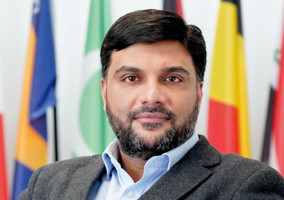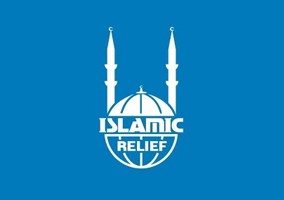Income at Islamic Relief Worldwide (IRW) rose to £149m last year, driven by a sharp rise in donations and legacies.
This is an increase of £18m, or around 14%, according to the charity’s financial accounts for the year to December 2020, which were published yesterday.
IRW raised over £15m during Ramadan alone, its highest ever total, despite shifting to virtual fundraising in response to the pandemic. There was also a large increase in donations transferred to IRW by charities working as part of the Islamic Relief network elsewhere in the world.
The accounts show that IRW worked with external experts to “rescreen” more than 100 senior staff across the Islamic Relief network last year, after the Charity Commission investigated antisemitic social media activity by some trustees.
Income, spending, reserves
Total income at IRW was £148.9m at the end of 2020, up from £131m in 2019.
Money raised from donations and appeals in the UK rose from £27m to £36m, while income distributed to IRW from other parts of the global Islamic Relief network went up from £82m to £91m.
This was off-set by a small drop in income from IRW’s charity shops, which was £600,000 lower than in 2019.
Expenditure was also up slightly, from £128m to £129.4, which funded projects in 39 different countries including the UK.
The charity said that it cut costs by freezing recruitment and postponing some new projects during the pandemic, as well as using the government’s furlough scheme.
The number of staff employed by IRW has hardly changed, falling from 469 to 465.
Unrestricted reserves rose from £9.4m to £12.4m.
Responding to the Charity Commission
The Charity Commission opened a compliance case into IRW in summer 2020, after The Times newspaper revealed that three of the charity’s trustees had posted antisemitic content on their personal social media. In January 2021, the Commission concluded that the charity had made “significant improvement” in its governance.
A separate, independent commission into IRW’s governance, arranged by the charity and led by former attorney general Dominic Grieve, said that it was a “highly effective” organisation but would need to “deal with” ongoing reputational risks.
The accounts said: “The board of trustees publicly committed to implementing all of the recommendations of both the Charity Commission and the independent commission.
“A number of the recommendations have already been put in place.
“We have updated our code of conduct, developed and rolled out an extensive personal social media policy for staff and trustees, and used specialist external vetting rescreen over 100 senior leaders across the Islamic Relief global family.”
The accounts also show that IRW handled 12 cases where employees had raised safeguarding concerns related to colleagues at the charity. Of the cases concluded before the end of 2020, IRW took action in four, “including dismissal in one instance”.
Impact of Covid-19
Writing in the introduction to the accounts, Ihab Saad, IRW’s chair of trustees, said: “The pandemic has had a profound effect on the communities who rely on us for life-saving aid and on those who give so generously to support our work.
“It has restricted our operations, sometimes severely, and personally affected many of our staff, our donors and their families.”
Saad thanked the charity’s donors who “have stood by us at a time of real economic uncertainty”.
Related news











